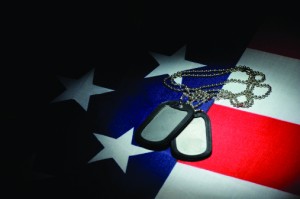
By Chadwicke L. Groover, Esq., Upstate Elder Law, P.A.
Since 1779 the United States government has provided pensions for veterans of its wars. Over the years the pension program has expanded from a traditional pension retirement to include payments to veterans for non-service related disabilities. Today’s disabled veterans, who require the assistance of another person and have a financial need, may be qualified for the Veterans Administrations’ Aid and Attendance pension benefits (A&A pension).
Benefits Provided
The A&A pension is an often overlooked benefit by those planning for their long term care or that of a spouse. A veteran and/or surviving spouse may be entitled to receive up to $30,480.00 toward their long term care needs. These benefit payments may be used to pay for the long term care needs of those in a skilled care facility, or an assisted living center, or who are homebound.
Eligibility Criteria
To qualify for the A&A benefits, a veteran must meet the following five eligibility criteria: (1) at least 90 days of active duty service, one day of which was during a period of war; (2) not be dishonorably discharged from military service; (3) be over the age of 65 years or be totally and permanently disabled; (4) require the aid and attendance of another person and (5) have limited resources and income.
Military Service
To receive A&A benefits the veteran must have served 90 days of active duty service. Active duty is a broad description of military service and includes both combat and non-combat duty. That being said, it does not include active duty for training. Due to this limitation most Reserve and National Guard service will not qualify.
Not only must the veteran have served 90 days on active duty, at least one of those days must have been during one of the qualifying periods of war, which are defined as:
– World War II: Dec. 7, 1941-Dec. 31, 1946
– Korean Conflict: June 27, 1950-Jan. 31, 1955
-Vietnam War: Feb. 28, 9161-Aug. 5, 1964 if the veteran served in the country of Vietnam and Aug. 5, 1964-May 7, 1975 for all others; and
-Gulf War/War on Terror: Aug. 2, 1990-present
Not Dishonorably Discharged
In addition to the active duty service qualification, a veteran must have been discharged from military service “under conditions other than dishonorable” in order to be eligible for the A&A pension.
Disabled or over 65 years
Veterans claiming the A&A pension must also be over the age of 65 years and/or totally and permanently disabled. A veteran is disabled if he or she is in a nursing home, is unemployable for life, is disabled for Social Security purposes, or has been determined to be disabled by the VA.
Aid of Another
In addition to age and/or disability, a veteran will have to show that he or she is a resident in a nursing home; is blind; or is so helpless or nearly helpless as to require the regular aid and attendance of another person.
Financial Need
Like Medicaid, the A&A pension is intended for veterans who have limited resources and income. The VA will not provide benefits to a claimant who has sufficient resources to pay for his or her own maintenance.
Generally, a veteran must have a net worth of less than $80,000.00 to qualify. In calculating a veteran’s net worth, the VA would exclude certain assets, such as the veteran’s primary residence, personal effects, and a vehicle.
In making an eligibility determination, the VA also considers the veteran’s countable income, which may not exceed the Maximum Annual Pension Rate (MAPR). In calculating countable income, the VA would take a veteran’s gross income and subtract any expenses. For example, the VA would take a claimant’s gross income and subtract from it the excludable expenses. Then if the resulting countable income is less than the MAPR, the veteran would meet this eligibility criterion.
Unlike Medicaid, the VA does not disqualify or otherwise penalize a claimant for making gifts or other transfers within the five year period prior to filing a claim for the A&A pension. If you are a veteran and are interested in learning more about the VA’s Aid and Attendance pension, please contact a lawyer who specializes in elder law.



